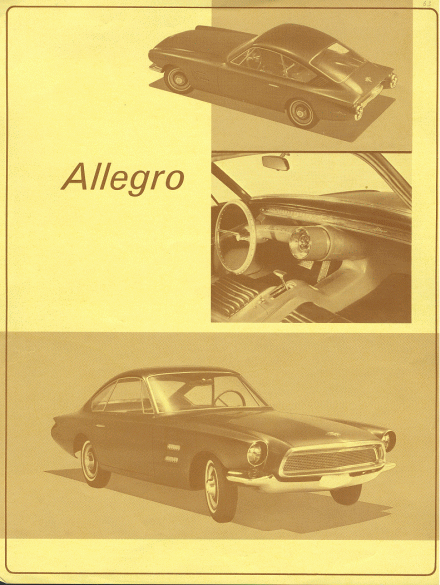1963 Ford Allegro Fastback Coupe Concept
- Aug 31, 2022
- 1 min read
The Allegro — the first of the second-generation X-Cars, fashioned in late 1962 — was based upon the earlier DeLaRossa Avventura design and built on a Falcon unibody.
Painted a delicate metallic gold initially, it established design elements that would heavily influence Ford styling throughout the Sixties: An isolated, centrally-mounted grille with satellite headlights, a long frontal aspect, and a short-coupled fastback roof line. The Allegro's rear fender treatment mimicked the 1961-1963 Thunderbird design and anticipated the styling of the production British Ford Cortina later in the decade. Moreover, the Allegro "s fastback styling established the basic configuration for the later production Mustang fastback. It traced its rear quarter panel treatment to a 1957 Ford Styling Studio exercise during the original Falcon's development effort. Prominently featured in Styling, a beautiful book on an automotive design published by Ford in 1963, the Allegro was described as a "...practical dream car, developed jointly by stylists and engineers." In Styling, Ford went on to further describe the Allegro as:
"Symbolizing sleekness, motion and, as its name indicates, brisk and lively performance, the Allegro is distinguished by a long hood, compact passenger compartment and a "fastback" roofline with grille waste gates in the fender area."
The Allegro presented a Cobra-esque front-end design and presaged the later production Mustang fastback roof. The small, vestigial fin also picked up elements of the '61-'63 Thunderbirds.
Though the proportions on the front clip were exaggerated, the fastback roof influenced the first-generation 1965 Mustang fastback. Two Allegros were built: a red-painted Fiberglas mule that appeared in a 1964 Mustang promotional film and this fully-functional car.
Source: www.thelynxproject.org
Images: Ford; www.shorey.net

%20(4)_edited.png)














































Comments